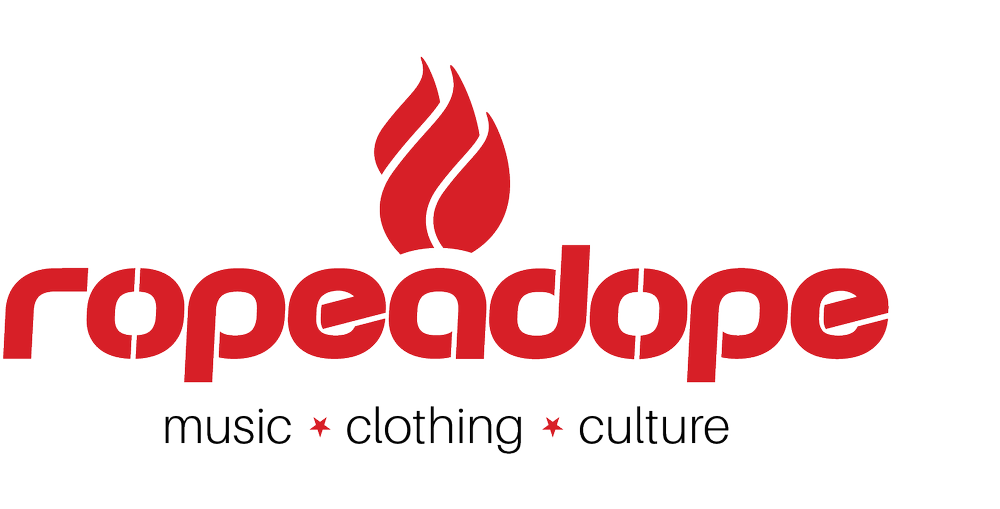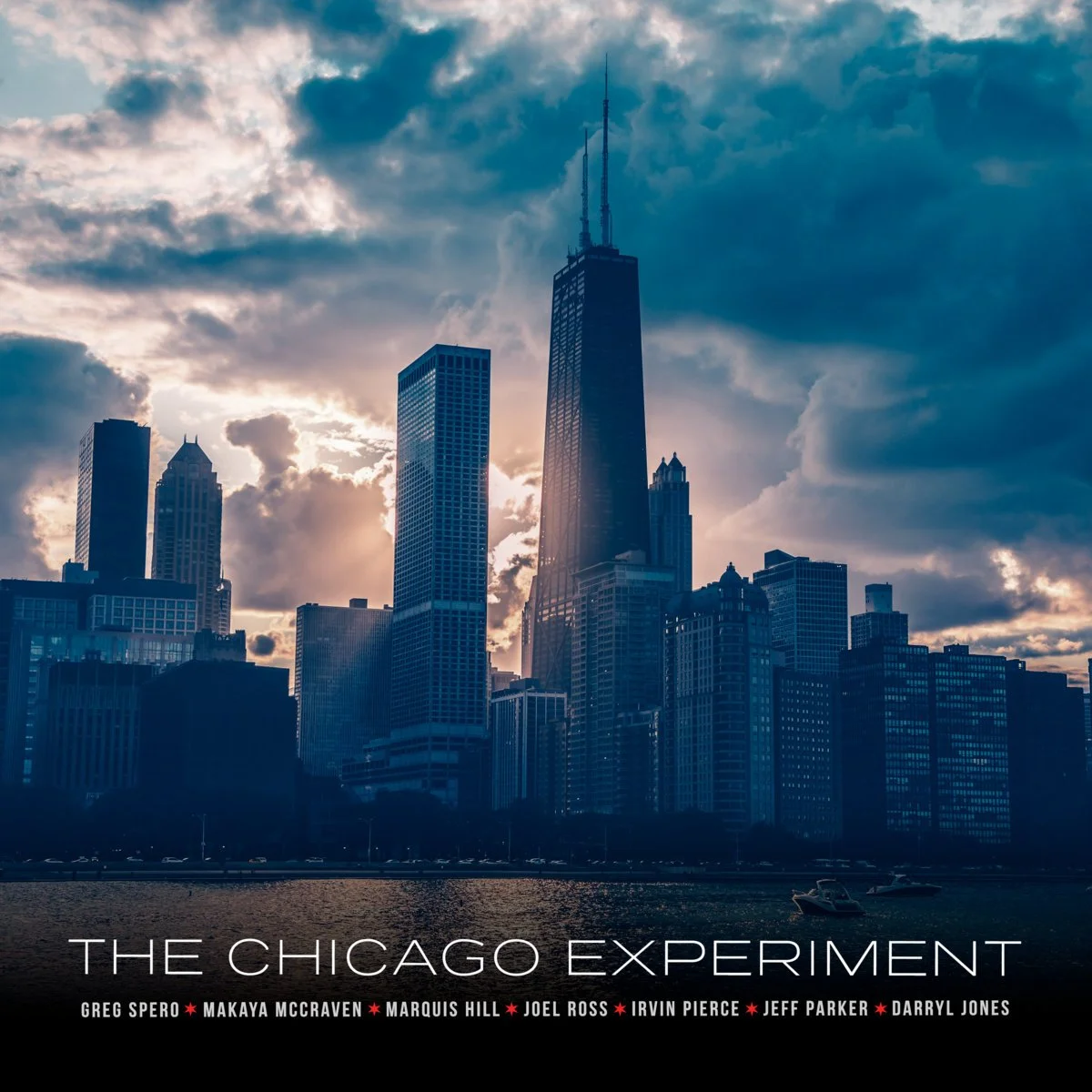Aaron Parks | Little Big - Vinyl
Aaron Parks | Little Big - Vinyl
Gatefold Double LP
Side One
Kid
Small Planet
The Trickster
Side Two
Professor Strangeweather
Lilac
Aquarium
Digital Society
Side Three
Siren
Mandala
Hearth
The Fool
Side Four
Bells
Rising Mind
Good Morning
Doors Open
Aaron Parks Little Big, the new Ropeadope album from the acclaimed pianist, keyboardist and composer, is at once the culmination of his brilliant early career and the long-awaited follow-up to his Blue Note Records debut, Invisible Cinema. That 2008 release, with its gorgeously melodic writing and improvising and deft use of indie-rock, electronica and hip-hop elements, established Parks as one of the most gifted and original young voices in jazz. “This is the natural successor to that record,” says the New York-based artist, 34. “It’s taking the ideas of that project and doubling down on them—fully committing to that direction.”
Little Big also marks the recorded debut of the intuitive working group that gives the album its title (and which takes its name from a fantastical novel by John Crowley—a favorite book of Parks and, the pianist notes, Wayne Shorter). Parks handled the production duties, with engineering by Daniel Schlett (whose credits include The War on Drugs and Ghostface Killah). The album was mixed by both Schlett and Grizzly Bear bassist/producer Chris Taylor, the latter of whom Parks met in a Seattle big band at the age of 10. “We put a lot of time and care into the way this record sounds, and the result”—simultaneously crystalline and warm, postmodern and natural—“makes me really happy,” Parks adds.
After experimenting with various lineups and sessions, Parks landed on three musicians ideally suited for this atmospheric, genre-bending new work. “This feels like a real band, one that will be around for a while,” he says. Greg Tuohey is the longest-running member, a guitarist who places taste and tone ahead of chops-focused bravado—or, as Parks puts it, “It’s like he’s chasing Miles Davis’ phrasing with Jimi Hendrix’s attitude.” On electric bass is David “DJ” Ginyard Jr., a left-handed player with a distinctively lyrical approach and an aptitude for seeing the bigger musical picture. “He really understands what the bass does, and he thinks super compositionally,” Parks says, noting how some of Ginyard’s basslines have become integral to the songs. Anchoring the unit is Tommy Crane, a forward-looking, stylistically resourceful drummer who brings both explosive creativity and a producer’s knack for precision. “He has a very unique ability to internalize and commit to the particular heartbeat of each song,” Parks explains, “but always with this vital and elastic human element, which is rare to hear in combination with the kinds of grooves we’re exploring.”
Together they interpret a panoramic set of Parks’ original compositions—from the 21st-century fusion of “Kid,” to the odd-metered studio jam “Professor Strangeweather,” to the trip-hop ambiance and folkish melody of “Bells.” The psychedelic “Aquarium”—“probably the sexiest tune on the album,” Parks says, chuckling—conjures up the trippy, sultry neo-soul vibe of Meshell Ndegeocello, before Tuohey offers a solo that channels Radiohead’s Jonny Greenwood. “Digital Society” somehow manages to evoke Afrobeat, bluegrass and Aphex Twin. “Lilac” is, as Parks describes it, “a solo-piano pop tune.” The leader’s “secret favorite” cut, “Doors Open,” seeks inspiration in late Talk Talk and the “earnestness” of Brian Blade & the Fellowship Band. That closing track is “definitely not afraid to go straight for your heart,” Parks says with a laugh.
A prodigal talent raised outside of Seattle, Parks moved with his family to study at the Manhattan School of Music when he was 16. Two years later, on the recommendation of a teacher, NEA Jazz Master Kenny Barron, he was invited to join trumpet great Terence Blanchard’s band. That tenure began the relationship with Blue Note that would yield Invisible Cinema, released when Parks was just 24. In The Guardian, John Fordham called the album “a real independent vision,” adding that “Parks is a fast-rising star.” In the September 2008 issue of JazzTimes, Parks was named a “New Jazz Visionary” alongside current giants like Esperanza Spalding, Robert Glasper and Christian Scott aTunde Adjuah. Over the ensuing decade, Parks certainly made good on that early promise. He was an essential presence in Kurt Rosenwinkel’s band, including on the guitarist’s well-received double album from 2012, Star of Jupiter. As a member of the supergroup James Farm, also featuring saxophonist Joshua Redman, bassist Matt Penman and drummer Eric Harland, Parks put out two celebrated albums on Nonesuch. In 2013 he released his first disc as an ECM Records artist, Arborescence, which DownBeat’s J.D. Considine called “a forest-invoking solo-piano effort marked by wonderfully detailed narratives and a harmonic palette worthy of Ravel.” Find the Way, an ECM trio session with bassist Ben Street and drummer Billy Hart, followed last year and garnered equally enthusiastic reviews.
On Little Big, Parks taps into the lessons he’s absorbed throughout those far-reaching experiences, while also progressing some of the au courant sounds he investigated on Invisible Cinema. “This feels like the most personal record I’ve ever made,” he says. What’s more, the album reflects his worldview, an outlook in which optimism and inclusion supersede politics. “There’s a lot out there right now to protest against, and it feels like it’s the artist’s duty to create music that reckons with the issues of the day. Nonetheless, this is not a protest record. It’s not against anything; it’s much more for something. What we’re aiming to do is blend genres and ideas in an open and fluid way, so that structure and freedom work together to serve the larger concept of the song. It’s a way of working together that feels representative of the kind of world I could imagine many of us might want to live in.”
credits
aaron parks - piano, keyboards
greg tuohey - guitar
david ginyard - bass
tommy crane - drums
all songs written by aaron parks (invisible cinema music, bmi)
produced by aaron parks
mixed by chris taylor & daniel schlett
recorded by daniel schlett at strange weather
mastered by greg calbi at sterling sound
executive producers - aaron parks & tommy hawk wilson
creative consultant - judie stein
additional keyboards by eliot krimsky
additional production by chris taylor
additional engineering by zach brown
assistant engineers garret deblock & kiri stensby
assistant mastering engineer steve fallone
album photography by aaron parks
album design by aaron parks & ania parks
album layout assistance by kaya marks
band photography by deneka peniston










